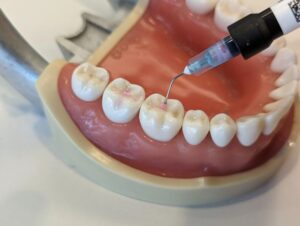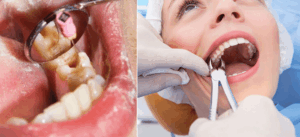Preparing for oral surgery requires careful planning and awareness of what to do before and after the procedure. Patients visiting a trusted dental clinic are often encouraged to follow dietary guidelines, manage prescribed medications, and arrange transportation ahead of time.
Paying attention to oral hygiene, rest, and post-surgery care can make recovery smoother and more comfortable. This guide outlines practical tips that help reduce stress and support a successful healing process.
Dietary Guidelines
Your diet before and after oral surgery plays a meaningful role in your recovery. Soft foods such as mashed potatoes, yogurt, or blended soups are gentle on the mouth and easy to consume. It’s best to avoid crunchy, spicy, or hard foods that could irritate the surgical site.
Staying hydrated by drinking plenty of water helps maintain comfort and aids healing, but avoid using straws since suction can disturb the area where stitches or clots are forming. Choosing foods rich in vitamins and minerals supports tissue repair and helps your body recover efficiently.
Medication Management
Proper medication use is an important part of oral surgery aftercare. Follow your oral surgeon’s instructions closely to manage pain and prevent infection. Pain relief medications should be taken on schedule to stay ahead of discomfort rather than waiting for it to increase.
If antibiotics are prescribed, finish the entire course to protect against infection. Refrain from drinking alcohol while taking medications, as this can interfere with both effectiveness and recovery.
If any unexpected side effects occur, such as dizziness or nausea, contact your dental provider right away. Careful medication management ensures a more comfortable recovery experience.
Hygiene Practices
Maintaining cleanliness after oral surgery is key to preventing complications. Once your dentist approves, rinse your mouth gently with warm saltwater or a prescribed mouthwash to keep the area clean. Use a soft-bristled toothbrush and avoid brushing directly over the surgical site to prevent irritation.
Stay away from smoking and alcohol, as both can slow healing and increase the chance of infection. Consistent, gentle care supports proper healing and helps avoid setbacks. Attending all scheduled follow-ups allows your dentist to check progress and address any concerns promptly.
Transportation Arrangements
Arranging reliable transportation is an important part of preparing for oral surgery. Since anesthesia and pain medication can affect alertness, it’s best to have a friend or family member drive you home after the procedure. If public transportation is your only option, plan your route in advance and avoid traveling alone if possible.
The first few hours after surgery are typically when you may feel the most tired or disoriented, so having someone nearby can help you rest safely and comfortably. Proper planning allows you to focus on recovery rather than logistics.
Post-Op Care Instructions
Healing after oral surgery depends on how well you follow your surgeon’s care instructions. Brush your teeth gently, avoiding the area where surgery was performed. Continue taking prescribed medications as directed and stick to a soft diet for several days. Avoid hot, hard, or spicy foods that could irritate the surgical site.
Physical rest is also important, try to limit strenuous movement or heavy lifting for at least a few days. Allowing your body to recover at its own pace promotes faster healing and prevents complications.
Communication With Surgeon
Maintaining open communication with your oral surgeon ensures a smoother and safer recovery. Before the procedure, share any medical conditions, allergies, or medications you take.
Understanding the process, expected healing time, and aftercare instructions helps you feel more confident about the treatment. After surgery, contact your dentist if you experience unusual swelling, persistent bleeding, or discomfort that doesn’t subside.
Prompt communication allows your care team to provide the right support and keep your recovery on track. Regular check-ins with your surgeon contribute to a faster, more successful healing experience.
Related Topics:






